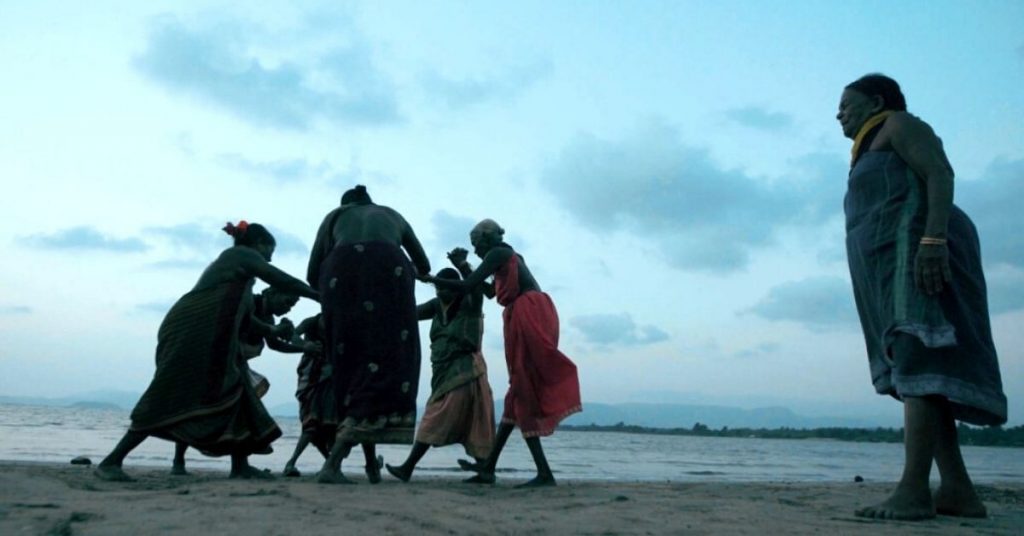B’Luru Filmmaker is Helping Save a Great Tribe Before Their Culture Vanishes
The Halakki tribe has produced Padma Shri awardees like Sukri Bommagowda and Tulasi Gowda. Sadly, their culture is in danger of vanishing. Sarah decided to document the life and culture of the Halakkis, but the harsh realities that she found out during the research and filming process of her film ‘The Unsung,’ made their way into the film and it has ended up being a heartwrenching chronicle of a tribe that has been stripped of its identity and is slowly fading into oblivion. In 2020, Tulasi Gowda from the Halakki tribe won the Padma Shri for her encyclopedic knowledge of plants and large scale tree plantation. She guided Sarah in the right direction, who finally managed to find them in Ankola.
Accustomed to living amid the forest’s bounty, they were now struggling to settle in makeshift tents and camps in the coastal town. Around two decades ago, corporate greed drove them out of their forested homes, forcing them to settle near the sea—an unfamiliar habitat. The legal ban on game hunting had also caused the tribe to rethink their dietary choices. Nearly 40% of the youth in the community are graduates, but they still work as seasonal farmers, fruit vendors, grocers and even labourers. The society looks down upon their community with such prejudice that they can’t blend in with the mainstream unless of course, they hide their identity.
The traditional beaded attire
Traditionally, the men in the tribe have worn lungis, but the present youth find the Western outfits far more comfortable. While the elderly women still stick to their traditional attire, the younger generation of women finds it immodest while the men consider it to be “indecent,” or “When I asked the women about the reason behind wearing the beads, nobody could answer. They all said that perhaps their mothers and grandmothers would have been aware, but now they continue wearing it to uphold their esteem,” mentions Sarah. In fact, no Halakki woman has strewn a beaded necklace in the past few decades. The ones wearing them now have inherited the same from their mothers as a family heirloom. Even the original and all natural composition of the beads now remains a mystery. These Halakki grandmothers continue the practice of singing while working. These songs are tribal ballads which have no documented existence and have been passed down orally over generations. Their celebrations comprise ‘Janapada’ dances and songs which depicts their unconventional rituals and customs. “They even narrate a version of Ramayana much different to the Valmiki Ramayana we grew up with,” shares Sarah.
Patriarchy and Alcoholism
Communicating with the older generation was another hurdle for Sarah because they speak a strange mix of old school Kannada and Telugu. It took her months of translation and interpretation to understand them. Even then, there are a lot of untold stories which she regrets not knowing or understanding yet. “The tribe used to be inherently matriarchal, with a woman leader chosen as head of the community. Other than that, they had a very egalitarian outlook that believed in equality of genders. However, in the recent past, the ills of Indian society have penetrated their lives. Despite having a female leader, patriarchy now dominates; with rising incidents of domestic violence on women,” informs Sarah, lamenting how the roots of rot have seeped in on them from the outside. Another problem now plaguing the Halakkis is severe alcoholism. With their exposure to the
mainstream, the young men, and even teenage boys at times, are dangerously becoming addicted to liquor. Many of them are succumbing to liver damage at a tender age. In an attempt to bring the Halakkis into the mainstream, the state government has branded them as a Scheduled Caste, making them eligible for certain reservations in education and career. To attain this tag, the tribe had to prove their ‘backward’ identity through criteria like primitive facial features, shyness of contact with the modern world and geographical isolation. But Sarah’s captures the repercussions of the same.
“We urban people consider them to be backward. If we are not marginalising them, then our savior complex and privileged upbringing prompt us to think they need our saving. This attitude is proving detrimental to the Halakkis, and many other Indian tribes for that matter. In our attempt to modernize them, we are obliterating their rich culture,” she asserts. ‘The Unsung’ captures the untold story of the Halakkis and their struggle of cultural sustenance amid a global wave of appropriation. It is high time we take note and do our best to preserve the culture and heritage of such communities in nooks and corners of the world.



 Join:
Join: 
